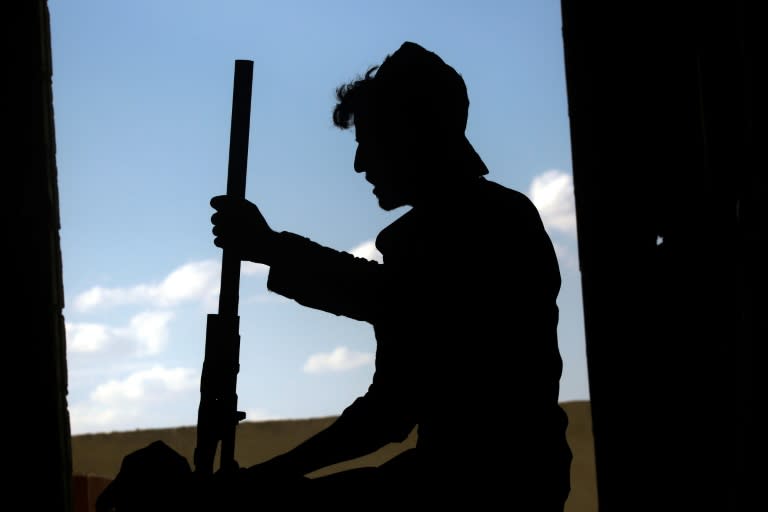US wants to steer clear of Syrian civil war: Mattis
The United States will not be drawn into Syria's civil war, Defence Secretary Jim Mattis has said, despite an increasingly complicated battle space that has seen US warplanes down pro-regime aircraft. Speaking to reporters on a military plane late Monday as he headed for meetings in Europe, Mattis said the US-led coalition was determined to keep a strict focus on fighting the Islamic State group. We won't fire "unless they are the enemy, unless they are ISIS," he said, using an acronym for the jihadist organisation. "We just refuse to get drawn into a fight there in the Syria civil war, we try to end that one through diplomatic engagement." His comments came shortly before White House spokesman Sean Spicer issued a statement saying President Bashar al-Assad's regime may be preparing for a chemical attack against civilians, and warning that the Syrian military would pay a "heavy price" if it took such action. Coalition forces on the ground have accused pro-regime fighters of targeting them in recent weeks, as they shot down two Iran-made attack drones and a Syrian fighter jet. "If somebody comes after us, bombs us or takes a heading on us or fires on us, then under legitimate self-defence we'll do whatever we have to do to stop it," Mattis said. The coalition has been active in Syria since late 2014, bombing IS targets and training local fighters to conduct ground assaults against the group. But gains for Assad, who is being supported by Russia, have allowed regime forces and Iran-backed militias to head towards areas where the coalition is operating. The Pentagon chief underscored the importance of maintaining communication with Russia as it conducts its campaign for Assad. So-called "deconfliction" hotlines are used regularly by the two sides to notify each other where they are operating and avoid accidents. Such hotlines will only grow in importance as the coalition pursues IS fighters into the Euphrates River Valley following their assumed defeat in their stronghold Raqa, as pro-regime forces also move toward the same region. "You've got to really play this thing very carefully," Mattis said. "The closer we get, the more complex it gets." - Weapons to the Kurds - Mattis addressed another aspect of Syria's tangled conflict -- the US supply of weapons to Kurdish fighters battling to recapture the Islamic State stronghold of Raqa in the north. The move has angered NATO ally Turkey, which says the Kurdish militia force YPG is linked to separatists of the Kurdistan Workers' Party (PKK) who have waged an insurgency since 1984, killing more than 40,000 people inside Turkey. Mattis said the US military would recover some logistical gear after the anti-IS fight, though he did not give details. Asked whether the US would also try to recover weapons, Mattis said, "We'll do what we can". "We'll be recovering them during the battle, repairing them, when they don't need certain things any more they'll replace those with some things they do need, that sort of thing," he said. When asked how well armed the YPG would be after Raqa, Mattis said: "We'll see". "It depends what the next mission is," he said. "It's not like the fight's over when Raqa is over." Mattis is visiting the Marshall Center in Bavaria to commemorate 70 years since the Marshall Plan, which helped rebuild Europe after World War II, before heading to a NATO summit in Brussels.



